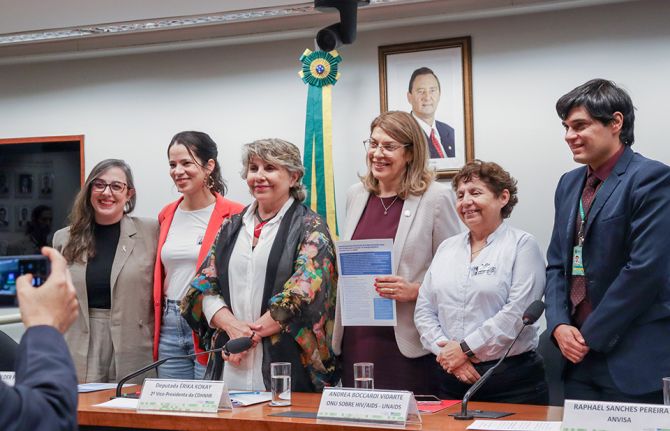

Update
UNAIDS works with Globo Television to reduce new HIV infections among young people in Brazil
22 September 2015
22 September 2015 22 September 2015Brazil’s biggest television network, Globo Television, has partnered with UNAIDS to stop new HIV infections among young people.
As part of the Live Better campaign, Globo, the second largest television network in the world, will broadcast a 30-second public service announcement promoting HIV prevention three times a day throughout September. The campaign was launched during the Saturday night show Altas Horas, which is widely watched by young people in Brazil, and will feature on its various entertainment and news shows.
The public service announcement calls on young people to open their eyes to HIV testing. It encourages young people to test for HIV and to start treatment early if necessary.
According to government estimates, the number of people newly infected with HIV increased by 11% between 2005 and 2013 in Brazil. Over the past decade, the country has seen a 50% increase in the number of new HIV infections among boys aged between 15 and 19 years.
UNAIDS Brazil Goodwill Ambassador Mateus Solano and Brazilian singer and UNAIDS supporter Wanessa Camargo are supporting the campaign through social media, on live shows and in videos.
The public service announcement will become part of the network’s film bank and will be available for use on national and local advertisement windows after September.
Quotes
"The campaign in partnership with Globo Television comes at a very important moment in the AIDS response, when society must unite to end the AIDS epidemic by 2030 or risk seeing it rebound out of control."
"This campaign in partnership with UNAIDS expresses our commitment to social mobilization on major themes on the national agenda. In this particular case, we focused on drawing the attention of young people to the risks of HIV infection."
“AIDS has no face, class or gender among youth. Any one of us can become infected—and the epidemic is affecting young people just like you and me.”



